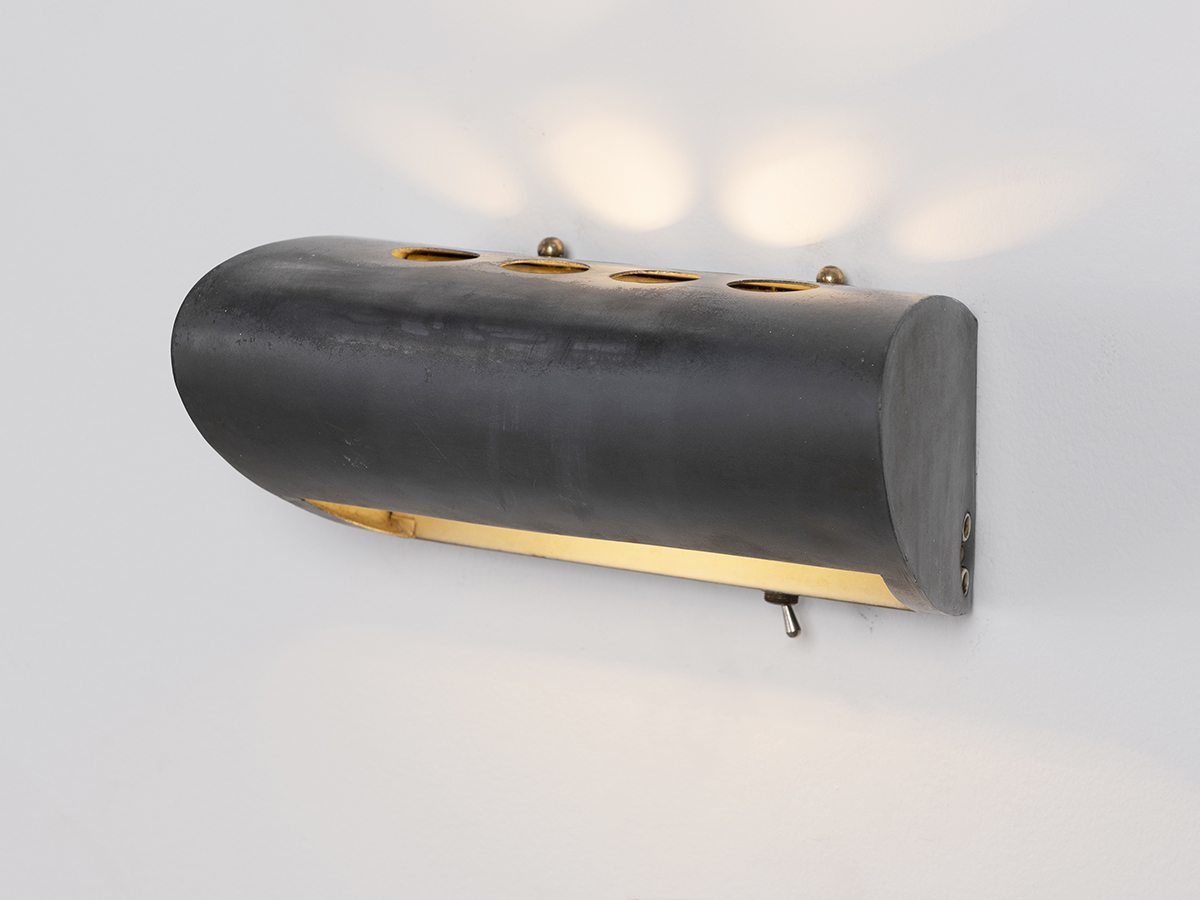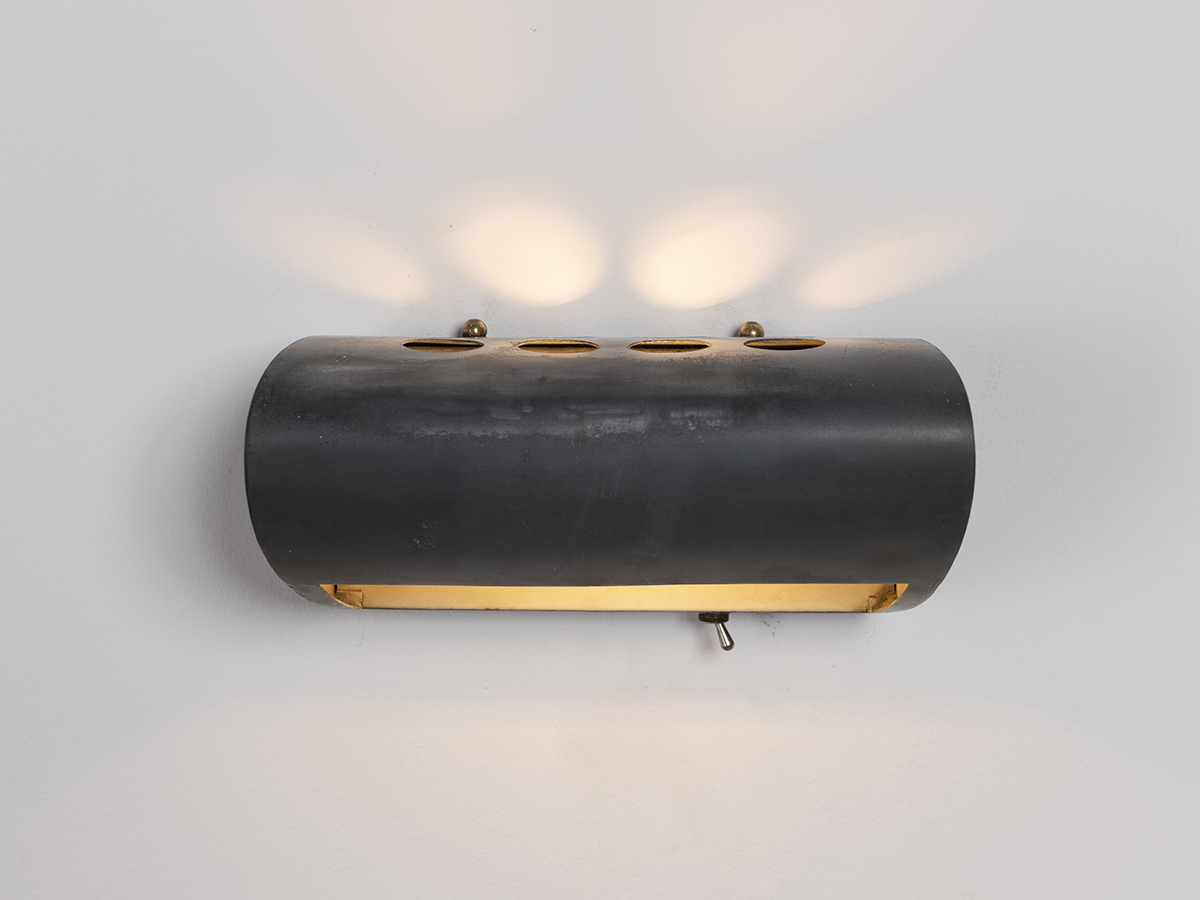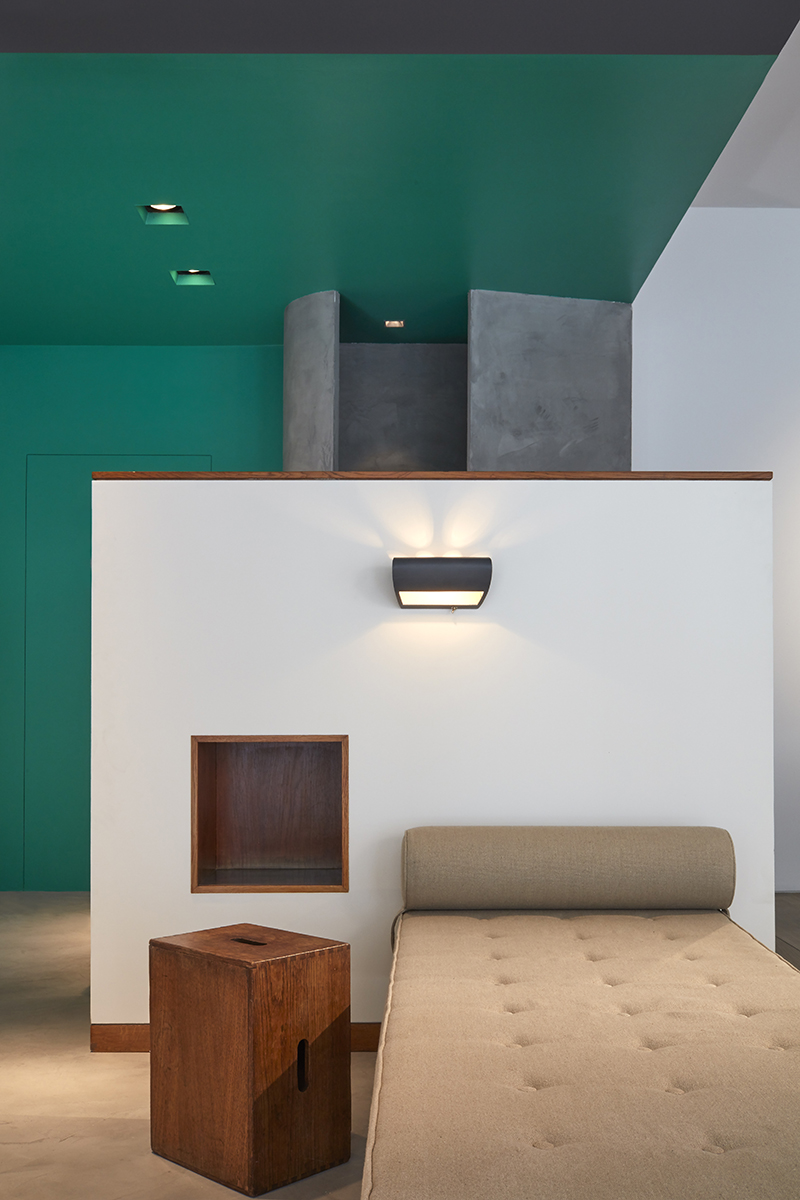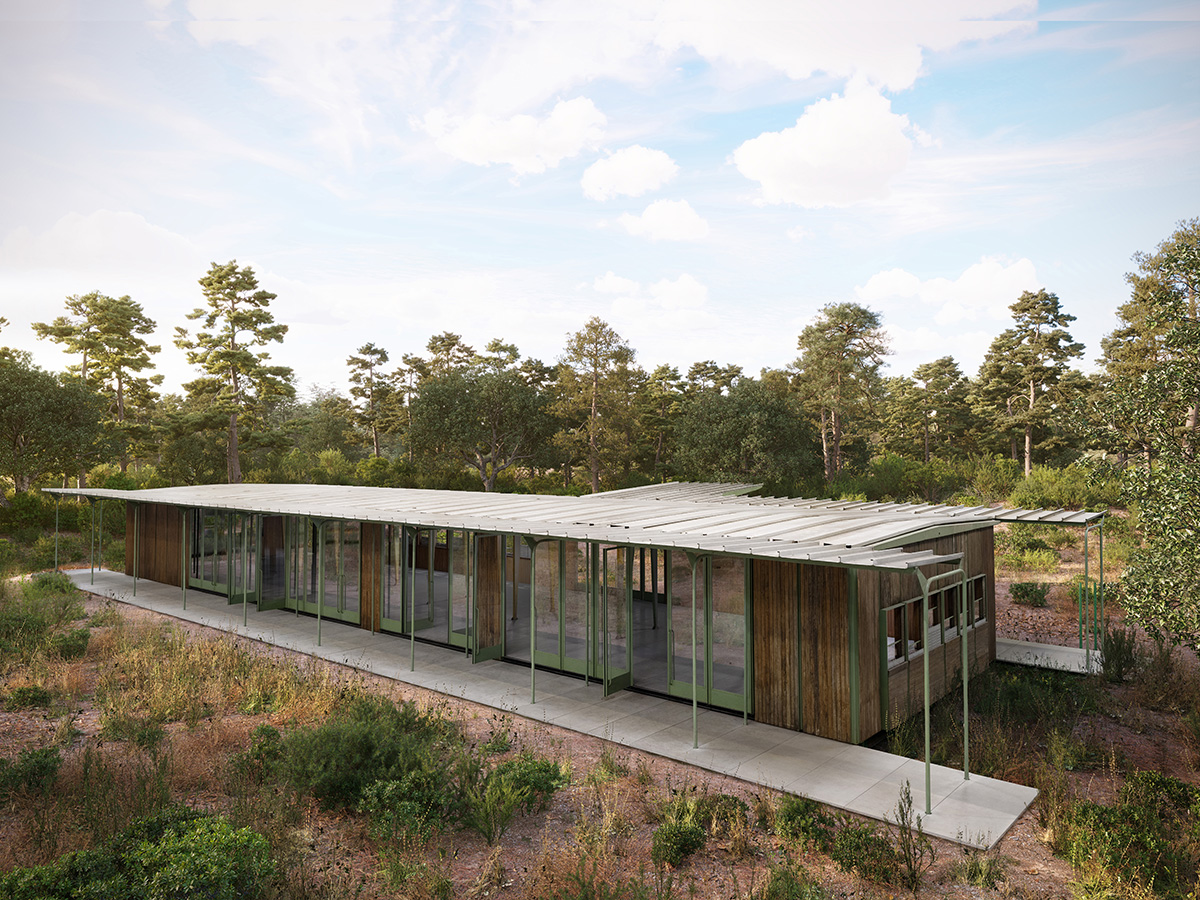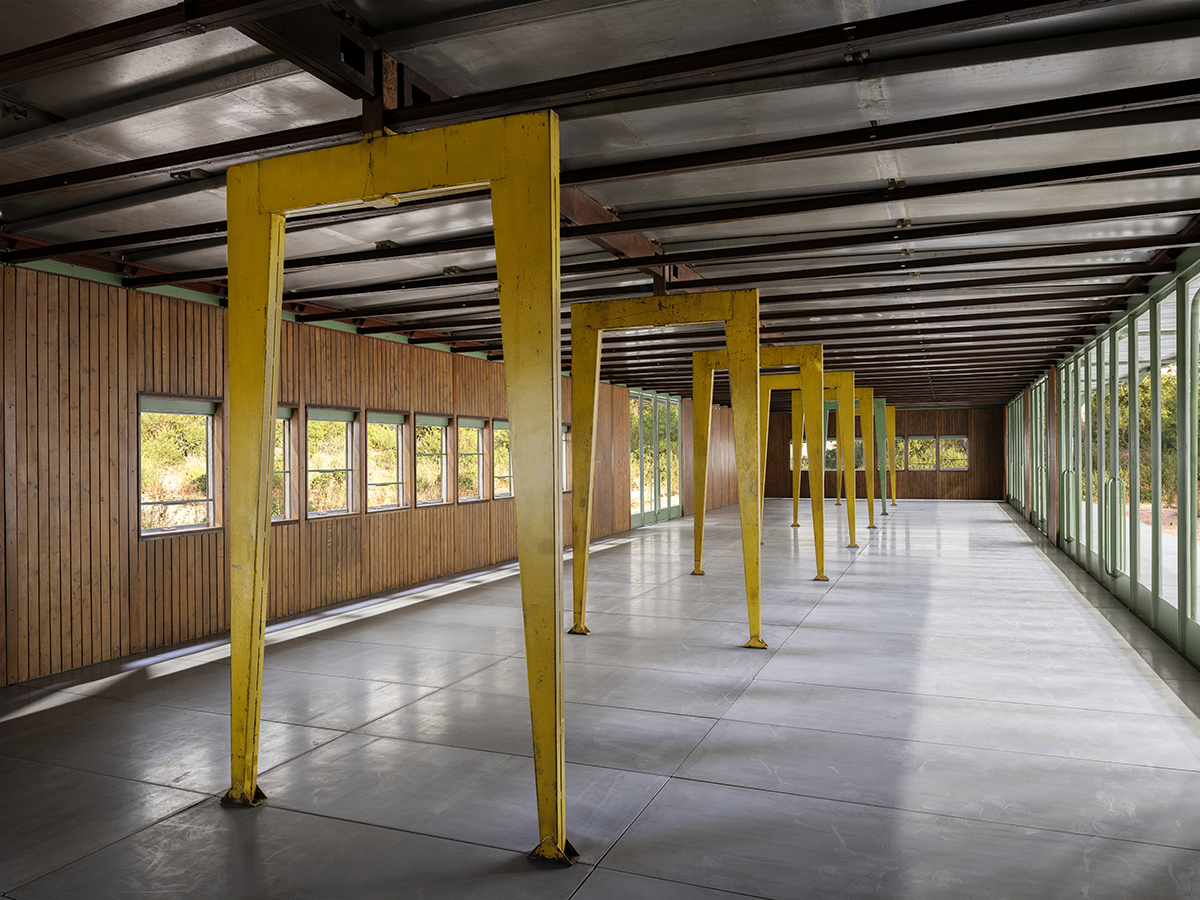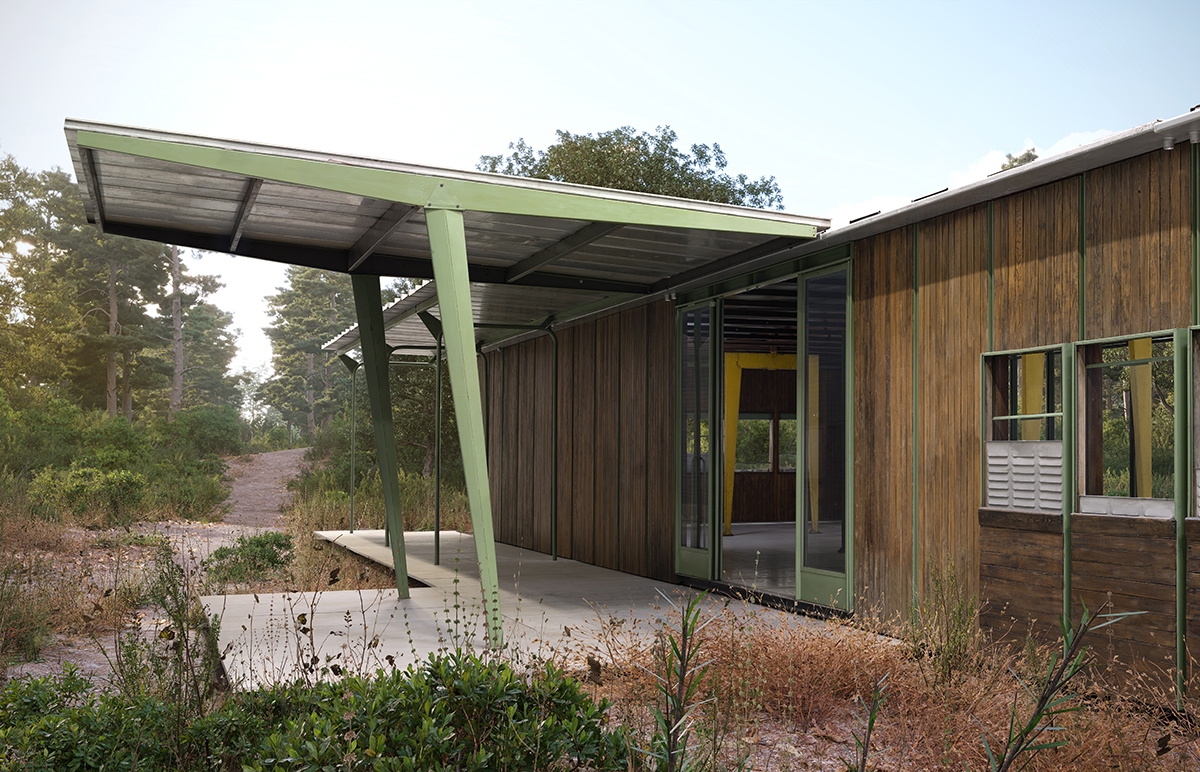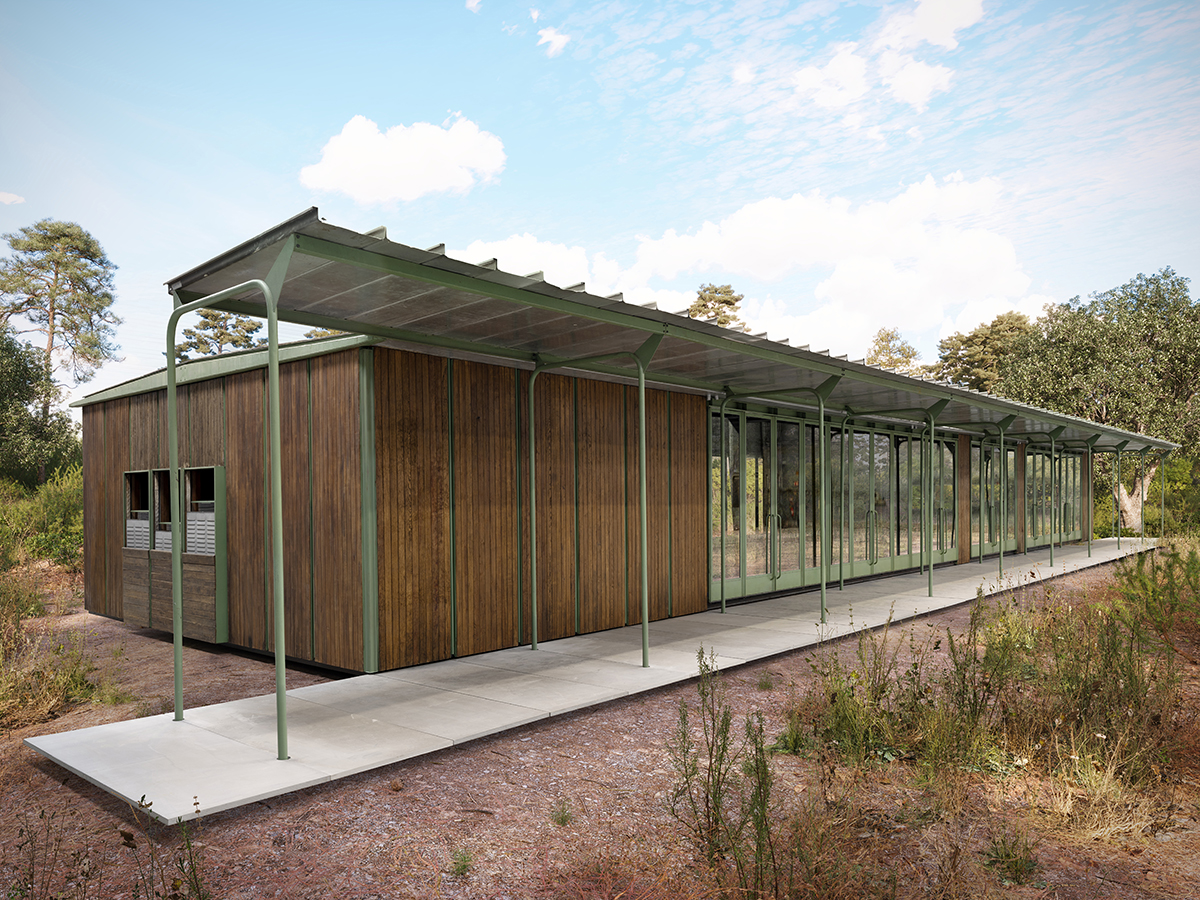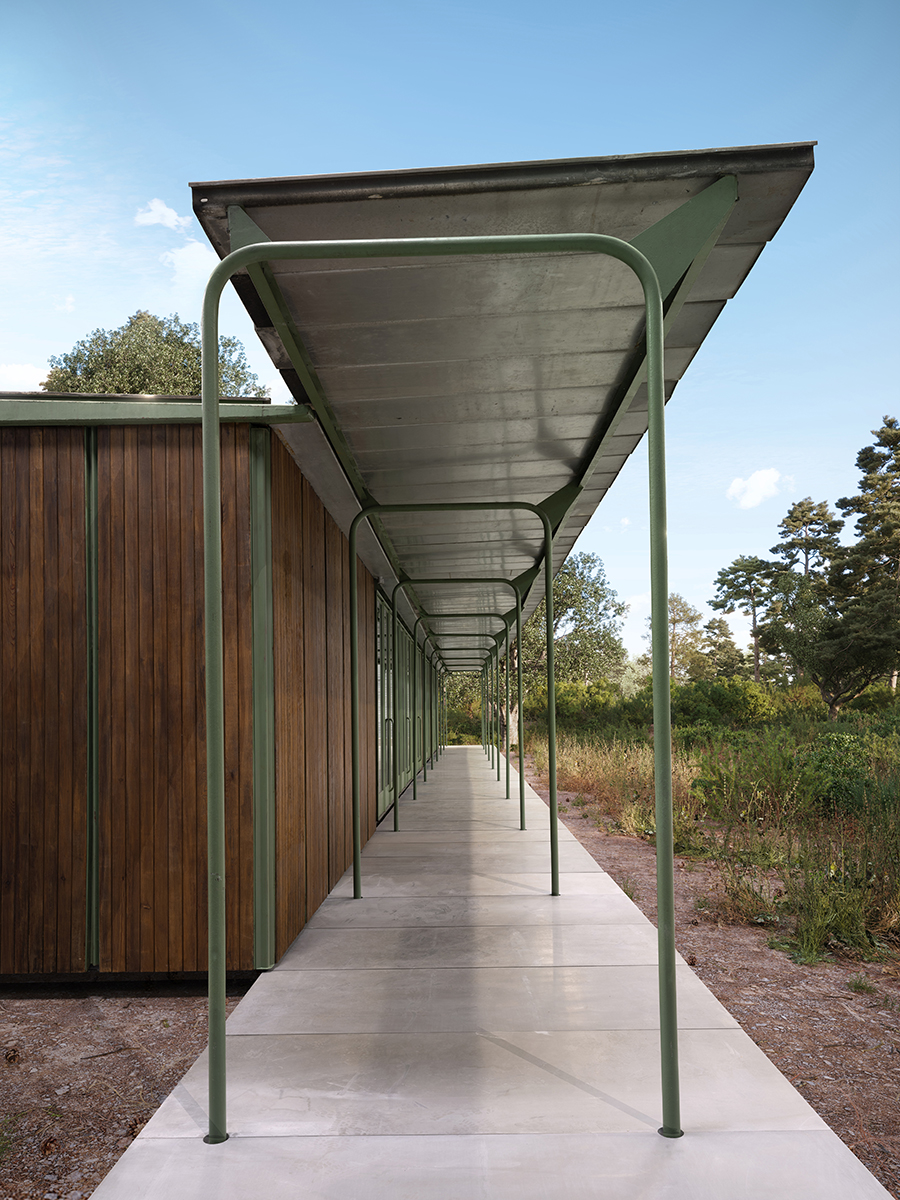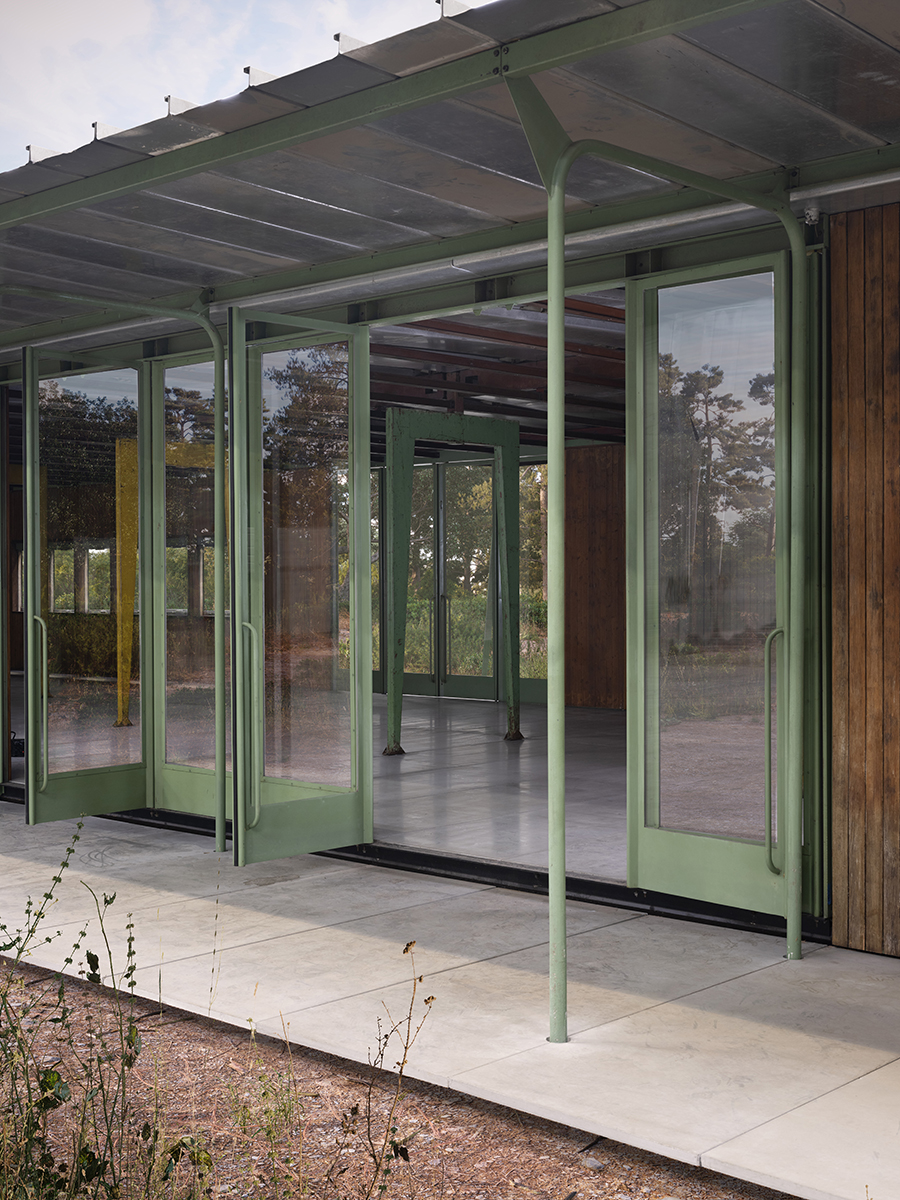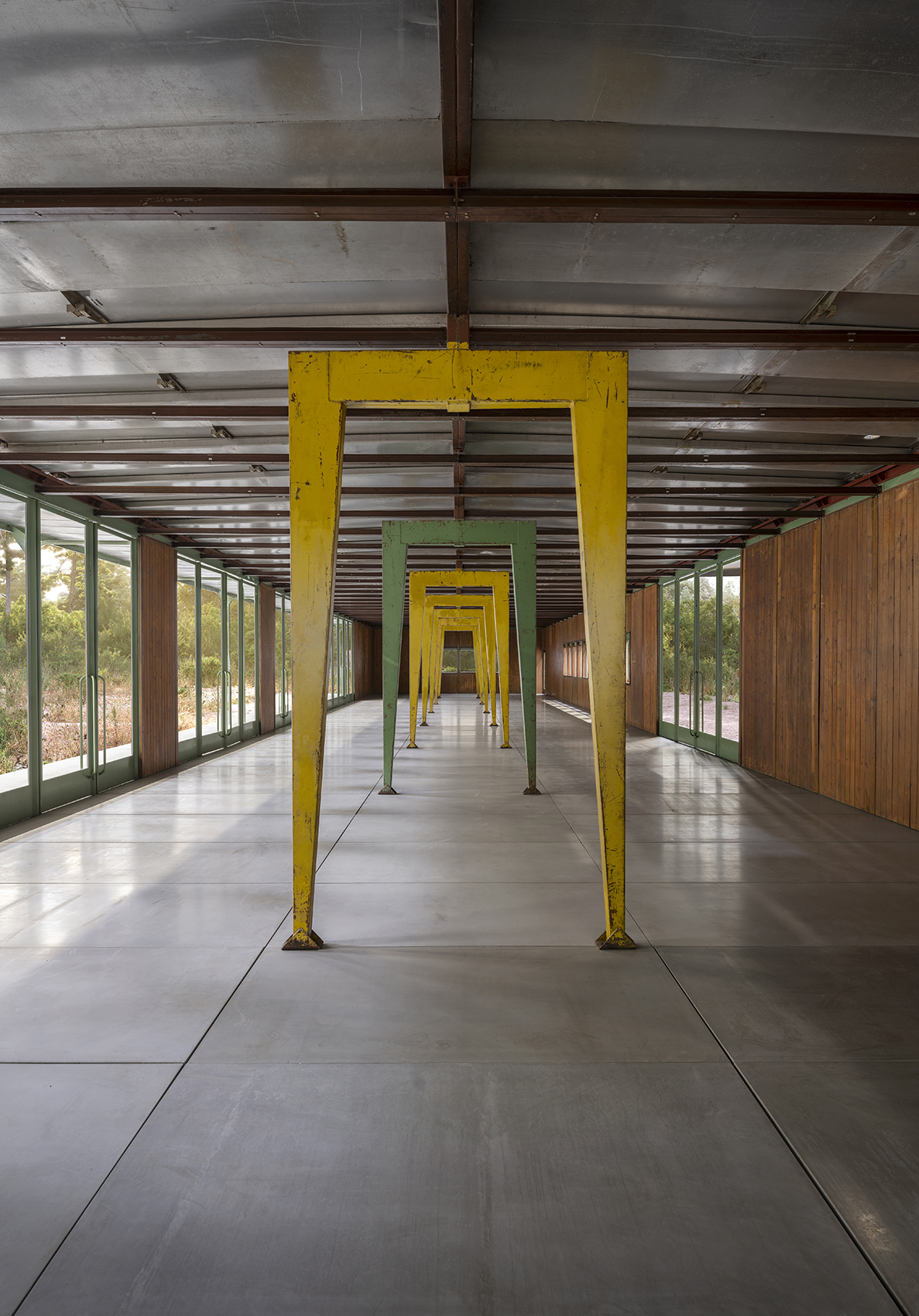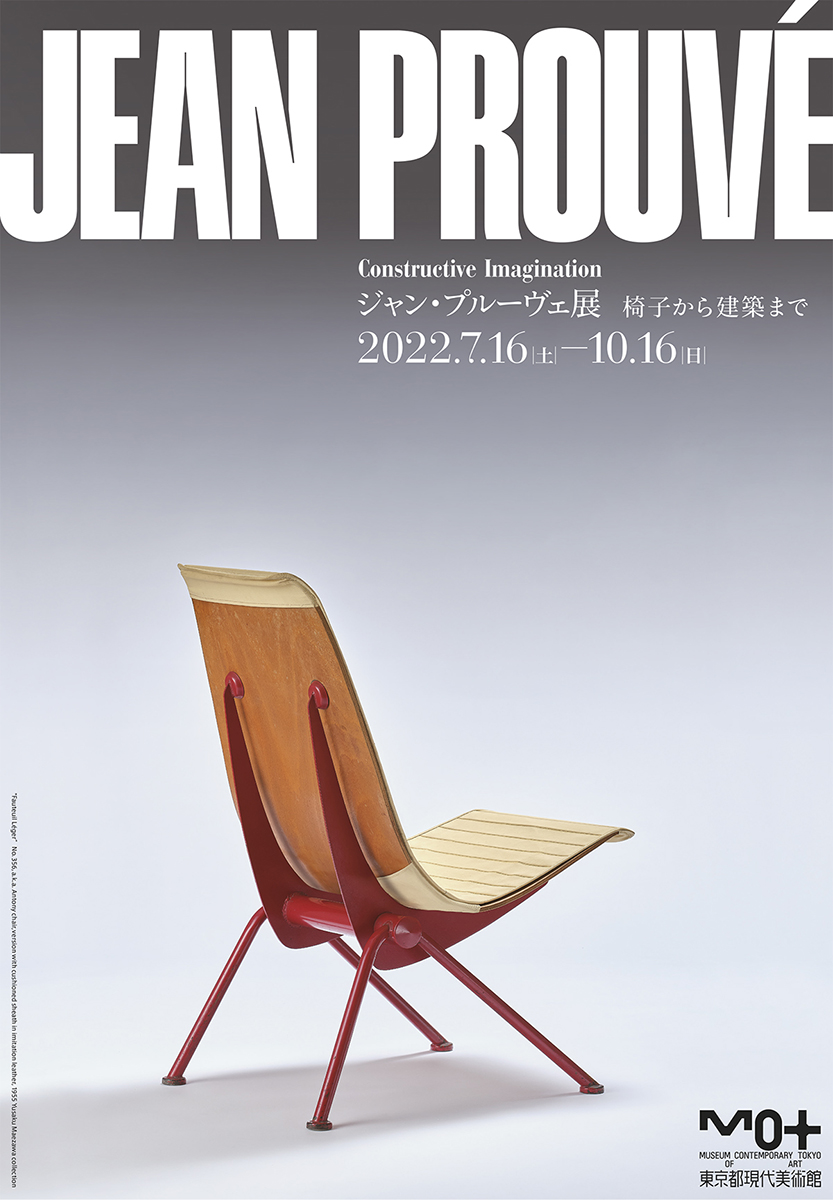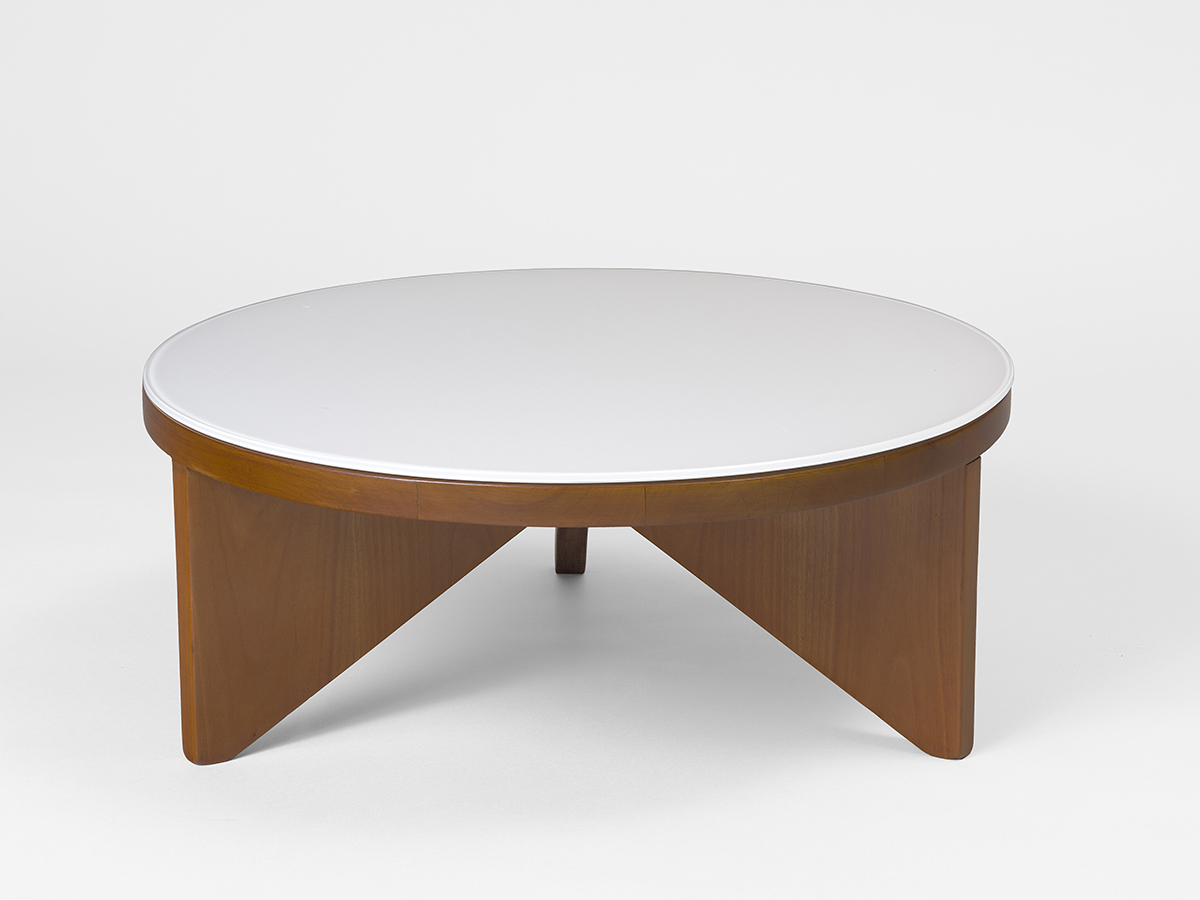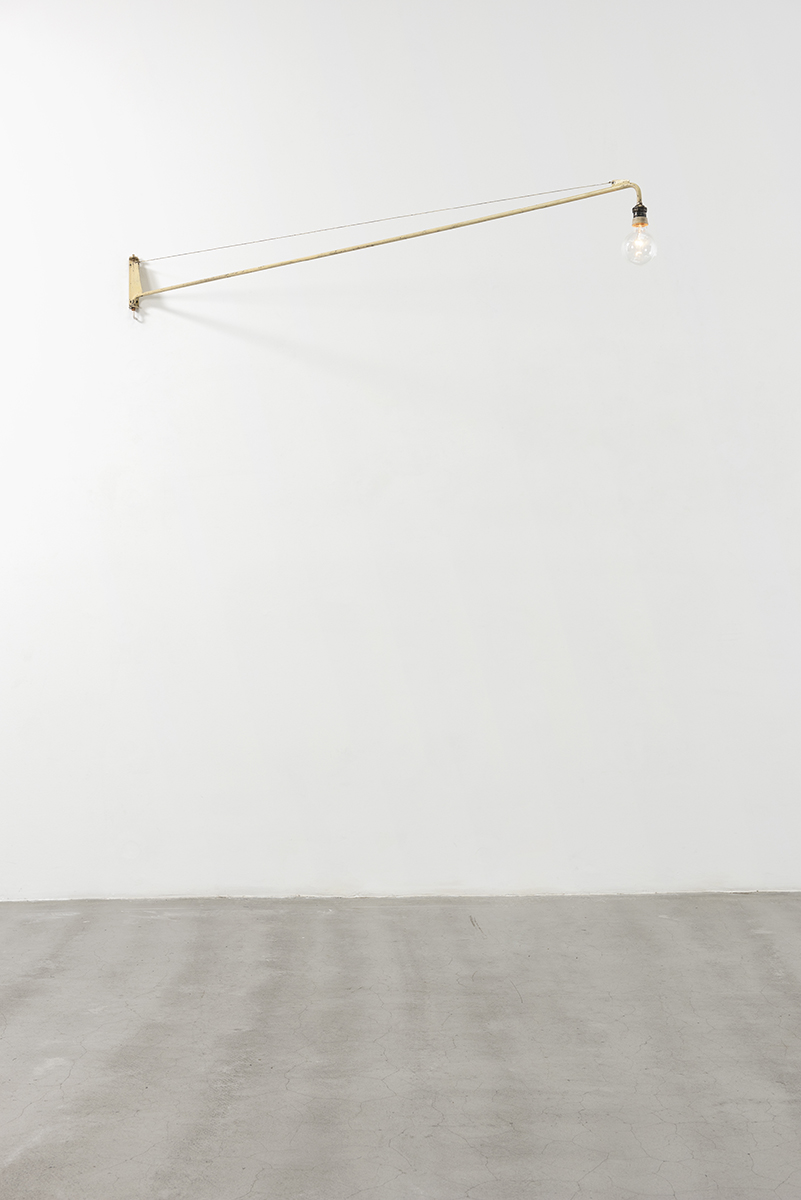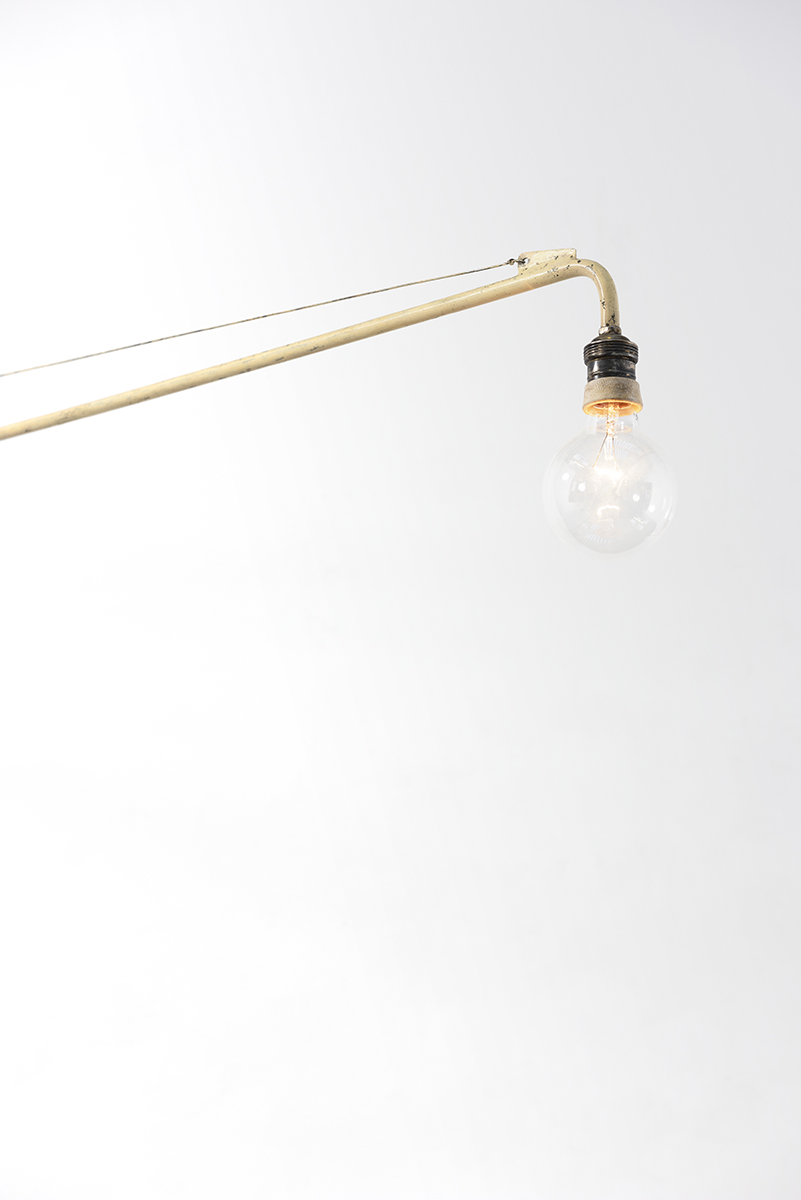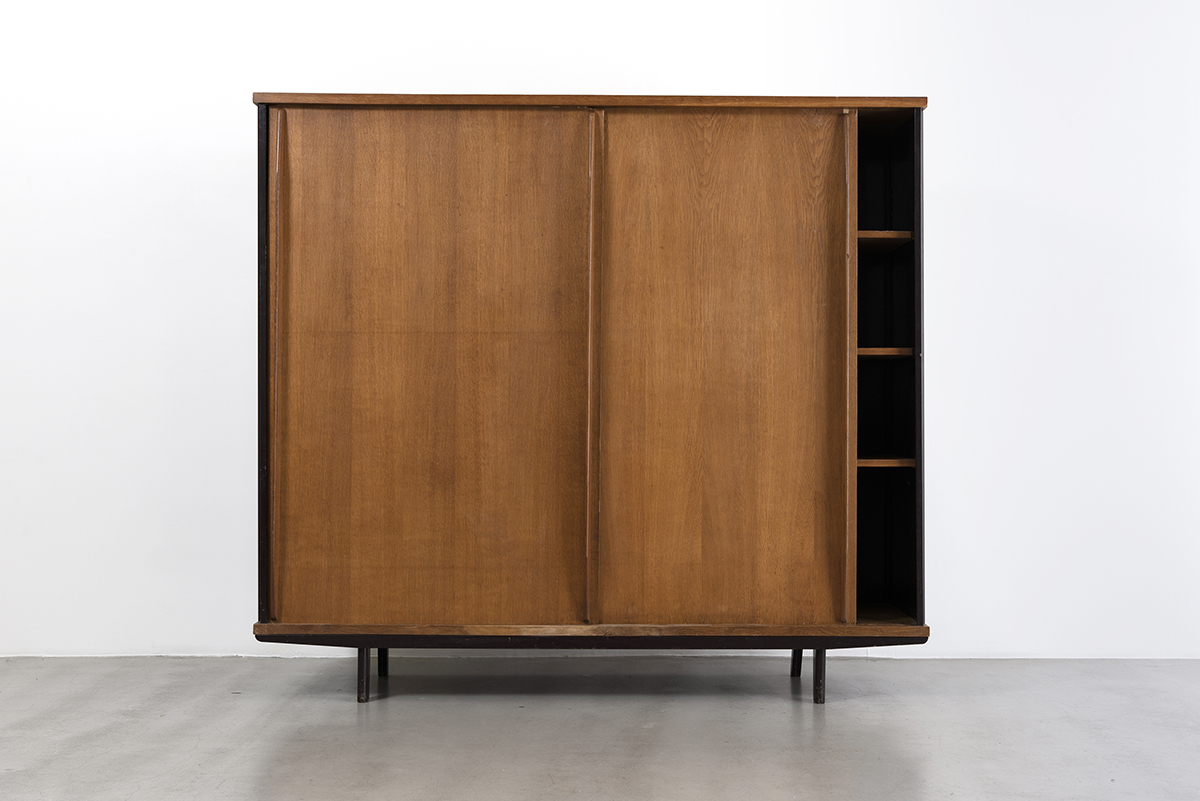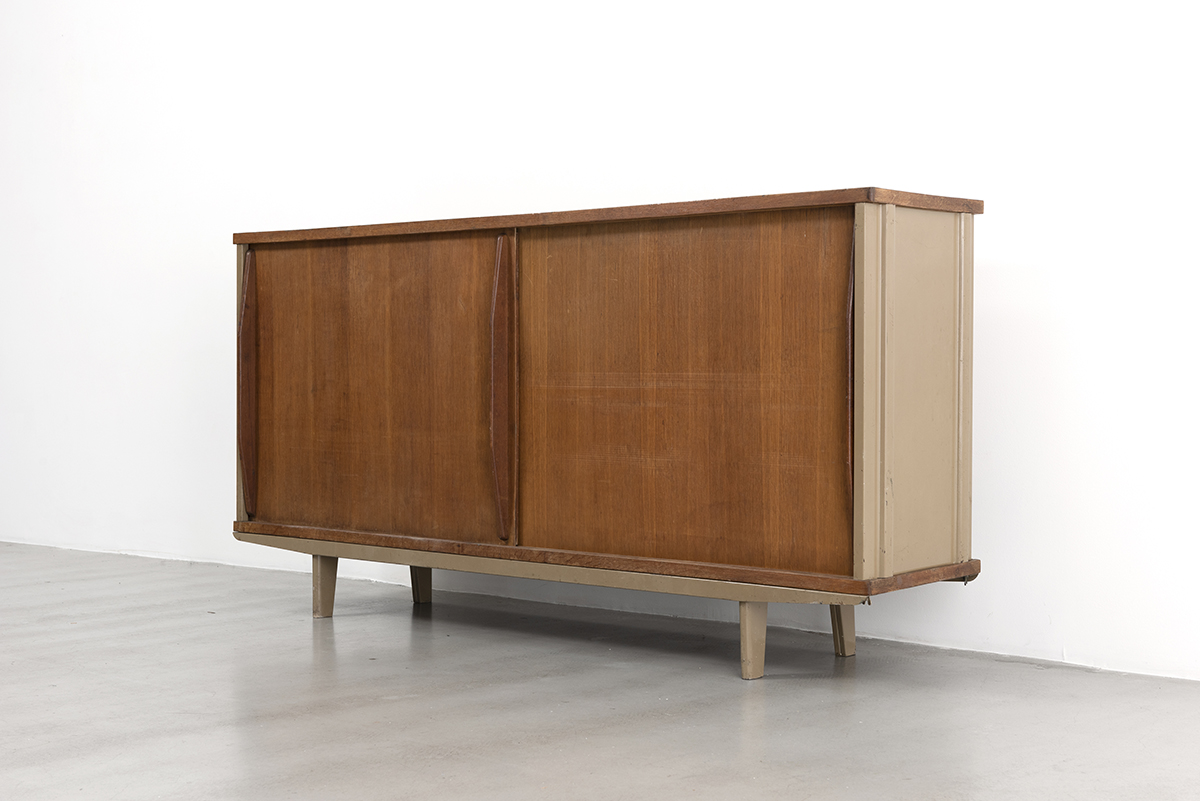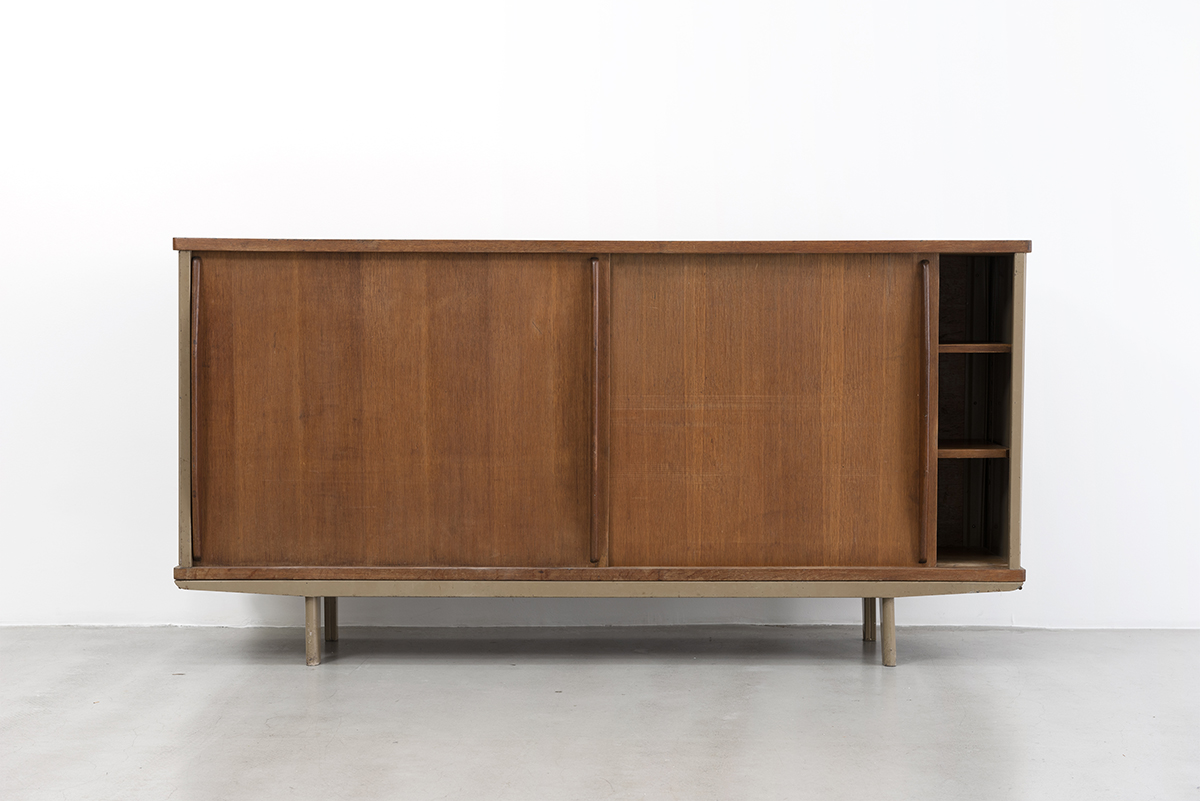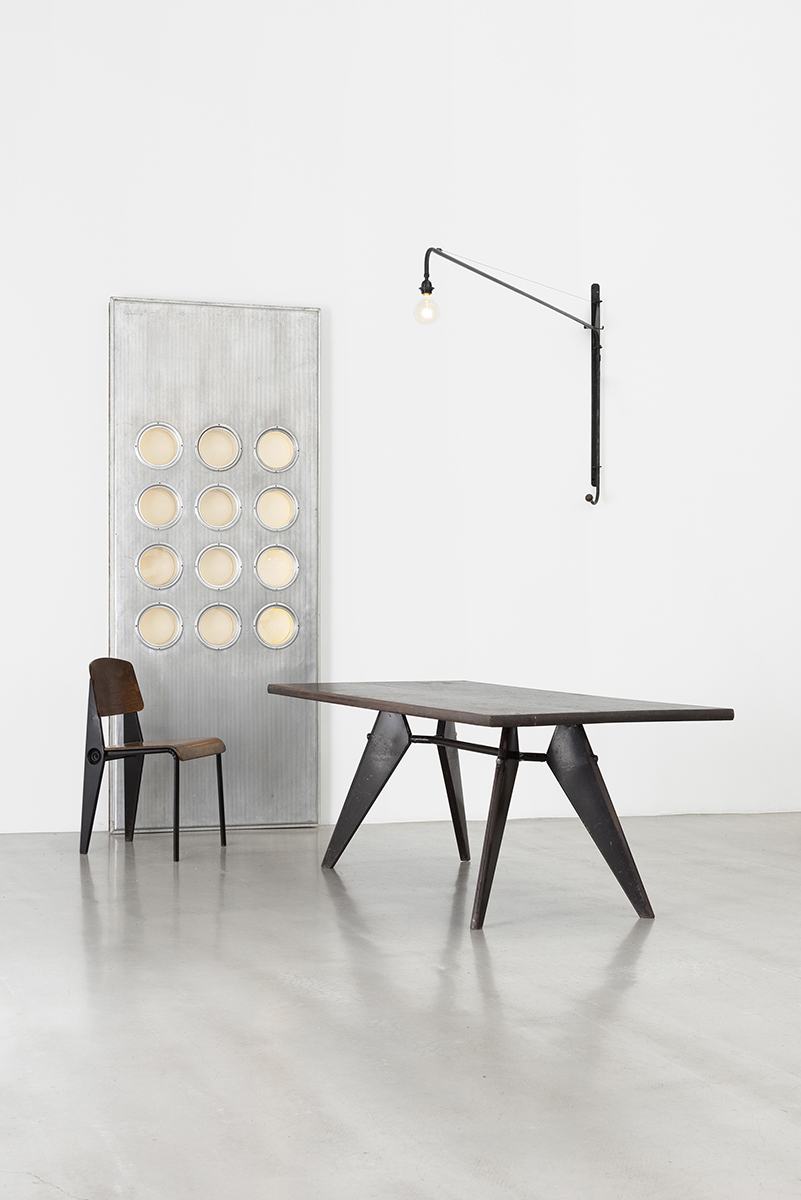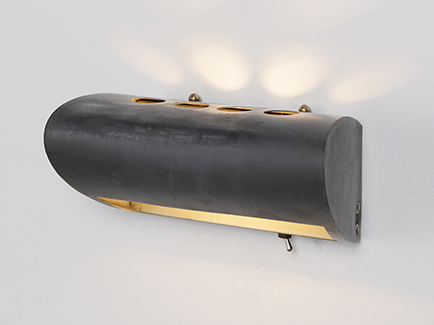

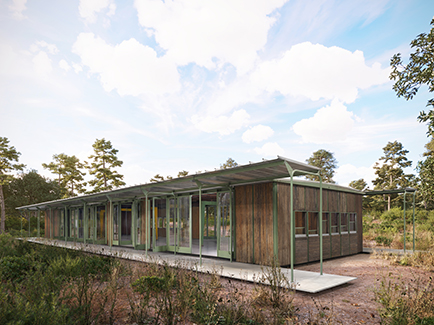
Croismare school, 1948
The creation of the Croismare professional training center was instigated by glassmaker Paul Daum and carried out by the Glassmakers’ Union in order to ensure the future of the industry by training a quality workforce. The center was designed to house young apprentices in training at the former Muller factory, located nearby.
The size of the building, the quality of its architectural treatment and the skills of the Atelier Jean Prouvé captured visitors’ attention as soon as it opened. During a visit to Croismare in June 1949, the Minister of Reconstruction and Urbanism, Eugène Claudius-Petit, declared, “This is it, the modern school”. This building is the most imposing central portal frame realization ever produced by the Ateliers Jean Prouvé and unites in a single project all the fundamental principles of his buildings.
The 255m² (2.744 sq ft) construction numbers seven central portal frames, over 3 meters high, and two external walkways that derive their elegance from the slenderness of the tubular portal frames. The facade panels, solid or glazed, give rhythm and contrast. The monumental entrance canopy in folded sheet steel is an autonomous module supported by two struts, key elements in JEAN PROUVÉ’s work. The spatial quality of the classrooms allows for generous light levels and broad views over the surrounding landscape.
JEAN PROUVÉ: CONSTRUCTIVE IMAGINATION
Galerie Patrick Seguin is thrilled to announce the opening of “JEAN PROUVÉ: CONSTRUCTIVE IMAGINATION”, an exhibition co-curated by Galerie Patrick Seguin and Tamotsu Yagi Design at the MOT museum, Tokyo.
Organized thematically, the exhibition will feature over a hundred pieces of emblematic furniture and architectural works along with archival material. It will gather pieces from the collections of Yusaku Maezawa, Patrick Seguin and Tamotsu Yagi and of the Prouvé family.
From July 16th to October 16th, 2022
MOT Museum of Contemporary Art Tokyo
4-chōme-1-1 Miyoshi, Koto City, Tokyo 135-0022, Japan
JEAN ROYÈRE – JULY 3, 1902
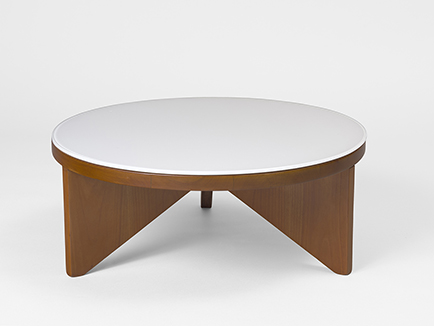
Coffee table, 1936
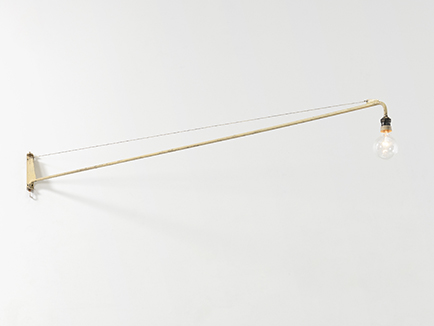
Swing-jib lamp, ca. 1950
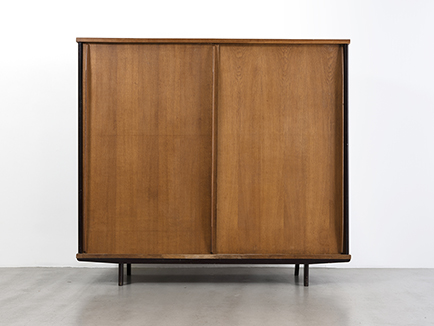
Wardrobe no. 100, ca. 1952
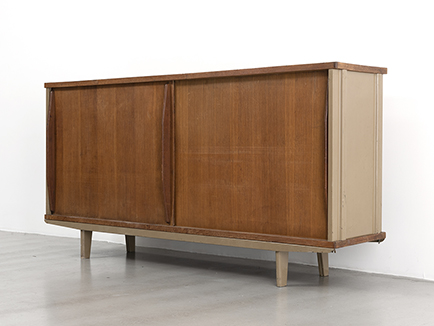
Sideboard no. 150, ca. 1950
Design Miami/ Basel – June 13 to 19, 2022 – Booth no. G02
For the sixteenth edition of DesignMiami/ Basel, GALERIE PATRICK SEGUIN is delighted to present a selection of JEAN PROUVÉ’s projects of demountable architecture, including the iconic 1948 Croismare Ecole de verrerie (school of glassmaking).
In 1937, encouraged by new measures taken by the French Government in favor of holidays for the working classes, Jean Prouvé boldly launched himself into the market of small, prefabricated leisure constructions, lightweight and movable. Thus ensued numerous architectural projects such as the BCC demountable house (1941), the 6×6, 6×9 and 8×8 demountable houses (1944), the Croismare training centre (1948), the Bouqueval school (1950), and the Better Days house (1956).
Thanks to their adaptability and their creator’s powers of anticipation, Jean Prouvé’s buildings and architectural elements, which were mostly designed to be temporary, mobile or modular, are just as relevant today as models of sustainable building.
The creation of the Croismare training centre, whose school is partially reconstructed for DesignMiami/ Basel, was instigated by glassmaker Paul Daum and carried out by the Glassmakers’ Union in order to ensure the future of the industry by training a quality workforce.
This building is the most imposing central portal frame realisation ever produced by the Ateliers Jean Prouvé.
The 255m2 (2745 sq. ft.) building numbers seven central portal frames, over 3 meters high, and two external walkways that derive their elegance from the slenderness of the tubular portal frames.The facade panels, solid or glazed, give rhythm and contrast.The monumental entrance canopy in folded sheet steel is an autonomous module supported by two struts, key elements in Prouvé’s work.
The Croismare school is one of the finest examples of Jean Prouvé’s constructive thinking and unites in a single project all the fundamental principles of his buildings.
The reconstruction will include the impressive canopy, the glazed double entrance door, as well as four majestic portal frames, which will stand proud. This installation is completed by an information wall presenting nine other constructions by Jean Prouvé, as well as iconic pieces of his furniture.
TEFAF NEW YORK 2022 / May 5-10, 2022 / Booth no. 331
GALERIE PATRICK SEGUIN is delighted to be exhibiting a fine selection of furniture by JEAN PROUVÉ and CHARLOTTE PERRIAND, from Brazzaville, Republic of Congo.
In a post-war context of change and reconstruction, Air France began its conquest of air transport and in 1951 the Paris–Brazzaville route was inaugurated. With modernity as its keyword, the company called upon Jean Prouvé and Charlotte Perriand, then at the height of their powers, to design the interiors of its residence in Brazzaville.
Completed in 1952, the red building which was meant as housing for European Air France staff, was an outstanding example of architecture for a tropical environment. Natural ventilation and orientation according to the prevailing winds guaranteed constant coolness for the occupants, while Jean Prouvé’s sun-shutters brought shade in a country where temperatures reach record highs.
The installation will comprise two very rare Jean Prouvé S.A.M. tables as well as two exceptional demountable Cafétéria chairs, an iconic swing-jib lamp, two elegant cupboards featuring a diamond point motif and rare colour range, as well as a sleek Guéridon. One of the three exceptional no. 507 tables by Charlotte Perriand will round off the presentation.
These are iconic examples of the oeuvres of Jean Prouvé and Charlotte Perriand. Comfortable, robust and functional, some of the pieces are displayed here in their modular state. Most of Jean Prouvé’s works were designed to be dismantled; less bulky and easier to transport, they were perfect for shipping by plane from the Ateliers Jean Prouvé straight to Africa. All the wooden furniture items are distinctively rendered in such local species as kambala (iron wood).
TEFAF NEW YORK
Park avenue Armory
643 Park Avenue
New York, NY 10065

